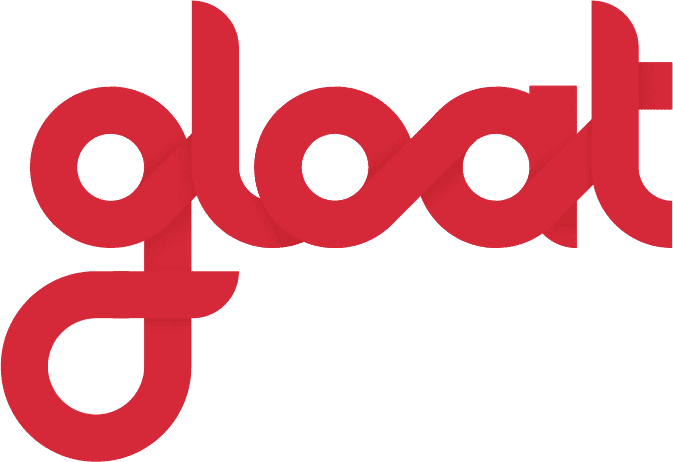Why workforce diversity needs to be a priority for 2024
Learn how to take workforce diversity to the next level with a talent marketplace

Diversity isn’t a buzzword or a nice-to-have; it’s an absolute priority that shapes both how your business functions and how your employer brand is perceived. Business leaders are moving Diversity, Equity and Inclusion (DEI) to the top of their agenda; a Culture Amp survey shows that 85% of HR and DEI practitioners believe that their organization is building a diverse and inclusive culture.
But while most stakeholders have their sights set on creating more inclusive workplaces, not everyone is set up for success—and in some places have taken a step backwards. For example, a smaller percentage of women occupy the tech industry’s workforce today than was the case in the 1980s.
Many businesses still have a long way to go to make their cultures more inclusive, and there are quite a few organizations that are only just beginning to make strides towards promoting equity. Whether your organization is just starting its journey or looking to upgrade their initiatives, talent marketplaces have the potential to take DEI efforts to the next level.
What is diversity in the workplace?
Generally, diversity in the workplace refers to an organization that intentionally employs a workforce comprised of individuals with a range of characteristics, such as different genders, religions, races, ages, ethnicities, sexual orientations, educations, and other attributes. Rather than promoting one type of employee or having a concentration of workers with similar backgrounds, employers that are committed to creating diverse workplaces make a concentrated effort to hire people from all walks of life and amplify voices from across their organization.
The effort to increase representation across all levels of an organization is picking up momentum, but still severely lacking in many instances. In 2023, more than 10% of Fortune 500 companies are ran by women CEOs—53 executives, the highest share in the list’s history. While a step in the right direction, when compared to the overall participation of women in the workforce (51.8% of all US workers employed in management, professional, and related occupations), the ideal of equal representation across all levels of business remains far away.
How does diversity impact business outcomes?
A diverse workforce is a win-win, as it will benefit both employees and the business. Diversity can lead to a myriad of positive business impacts, including greater innovation and increased creativity. When you bring together people with different perspectives and approaches, you create a melting pot of fresh, innovative ideas that can generate cutting-edge concepts and breakthroughs.
Inclusive businesses have also been found to be more profitable and generate higher revenues. After analyzing 180 companies across the United States and Europe, McKinsey found that the companies with more diverse top teams were more likely to be top financial performers. The same source also found that companies in the top quartile for gender diversity on executive teams were 25% more likely to have above-average profitability than companies in the fourth quartile for diversity.
In addition, Deloitte finds that an increased emphasis on workplace diversity tends to come hand-in-hand with a noteworthy boost in engagement. And since there’s a demonstrated link between employee engagement and turnover, companies can expect to see a significant improvement in retention when they prioritize workforce diversity.
Diversity improves public perception of your brand
Here’s another reason why enhancing workforce diversity deserves a spot at the top of your priority list: DEI dramatically improves how your organization is perceived and it shapes your employer brand. Every organization has a reputation, and on the heels of a national cultural reckoning, consumers and job seekers alike are expecting more from the brands they interact with. It’s no longer sufficient to have a DEI statement or to release annual reports; instead, people want to see businesses are actively striving to promote equity, and taking steps to level the playing field.
Conversely, the issues of a non-diverse workforce expand beyond reputation. A lack of diversity in the workforce can stifle innovation, leading to group-think and a lack of innovation. In tech, the issue is mounting: less than 1 in 5 employees in the high-tech space are women, and as technology continues to play a larger role in our lives, that lack of perspective can lead to missteps from otherwise well-intentioned organizations.
Companies that set themselves apart as DEI pioneers benefit from improved customer loyalty and often gain national recognition for the work they are doing. Media outlets regularly spotlight organizations that are leading the way when it comes to improving diversity and inclusion, such as a recent Fortune writeup about the top companies for diversity and inclusion, or Forbes list of America’s Best Employers for Diversity.
As the war for talent continues to intensify, businesses that are known for their DEI commitments will have a serious advantage. According to a recent Glassdoor survey, more than three out of four job seekers report that a diverse workforce is an important factor when evaluating companies and job offers. And it’s going to be particularly crucial for recruiting and retaining the youngest generation of talent, as evidenced by a report from Employee Benefits News, which shows that 87% of Generation Z workers cited DEI initiatives as very important to the workplace.
Prioritizing diversity as a core organizational value
There’s a big difference between thinking about workplace diversity and making diversity a core value that’s ingrained in your company culture and the way your business operates. In the past, some employers may have thought that merely discussing workplace diversity was sufficient, but in the new world of work, diversity, equity and inclusion must be part of your company’s DNA.
Every employee should be aware of your DEI efforts and feel encouraged to raise their voice, share new ideas, and come together to celebrate the differences within your community. When you have diversity as a core value, it doesn’t just apply to your hiring practices; it gives everyone the opportunity to embrace new perspectives, challenge the status quo, and feel comfortable sharing the fullest, most authentic versions of themselves.
The benefits of diversity in the workplace
Having a diverse workforce is a serious advantage that impacts every aspect of your business and your employee experience. Some of the most noteworthy benefits include:
Increased creativity
If you only employ one type of person, you’re likely to only get one kind of idea. To maximize creativity and innovation, you need to bring together people with different perspectives and unique ways of doing things. Ultimately, a diverse group will generate ideas that no single individual could have thought of alone.
Higher performance
There’s plenty of research to support the notion that more diversity leads to better business outcomes. For example, McKinsey found a strong correlation between companies with more diverse teams and improved financial performance.
Better brand reputation
As mentioned above, your DEI efforts will have a major impact on how your brand is perceived, both by employees and consumers. If you set your organization apart as a business that is fully committed to creating a diverse and inclusive workforce, you can expect a boost in employee morale and customer loyalty.
Superior engagement and retention
Deloitte found that businesses that are more diverse are also more engaged. Employee engagement is currently a top priority, especially as the war for talent intensifies. If your people are actively participating in your organization and feel inspired to achieve their full potential, they will be far less likely to seek out opportunities with other companies.
The challenges of diversity in the workplace
While there are plenty of benefits associated with workplace diversity, there are also a few challenges that leaders need to keep on their radar, including:
Miscommunications and misunderstandings
With more ideas and more perspectives comes a greater risk that information might slip through the cracks, or be taken out of context. Your employees may also have different expectations surrounding workplace culture and etiquette. It’s important to encourage ongoing communication, respect, and transparency to help everyone see eye to eye.
Slower decision making
Bringing in multiple viewpoints and different perspectives is ultimately beneficial, but it can also extend the decision making process, since there will be more questions to answer and opinions to consider. While it may make some processes feel more tedious at first, diverse opinions can ultimately lead to greater efficiency by enabling you to troubleshoot and avoid missteps that might otherwise prove costly.
The risk of discrimination
As you diversify your team, you run the risk that some employees may be discriminated against, or left out of crucial discussions. To avoid this, you need to make sure that your diversity initiative goes hand-in-hand with inclusion efforts.
How to get started promoting workplace diversity
In the past, many workplace diversity initiatives were doomed to fail because they overlooked one key truth: we are all biased. Even the most diplomatic, open-minded individuals have a set of underlying assumptions that unconsciously skew their viewpoints and can sway their decisions.
Talent marketplaces powered by ethically-constructed AI can level the playing field, democratizing career development and increasing the visibility of opportunities and talent—in turn mitigating bias.
While there’s no quick-fix or magic tool that will single-handedly take your DEI efforts to the next level, connecting a broad range of workers to opportunities is one of the best first steps to make. Through a talent marketplace, a worker’s skills can be assessed for the right fit in a project without being clouded by human bias.




